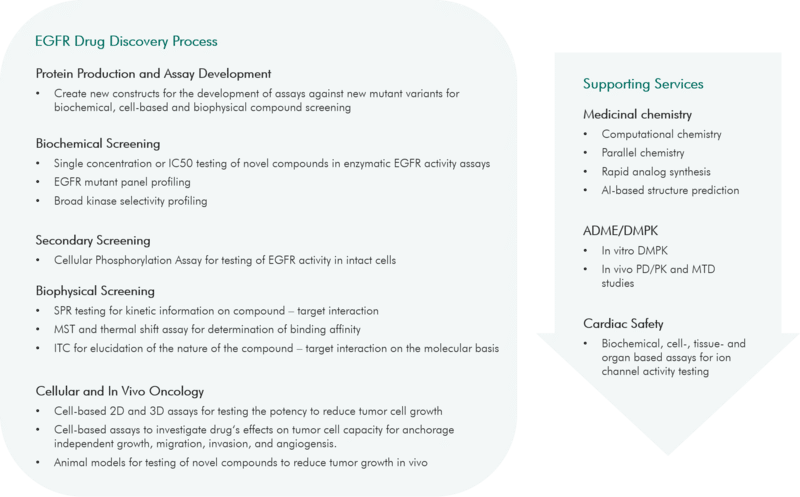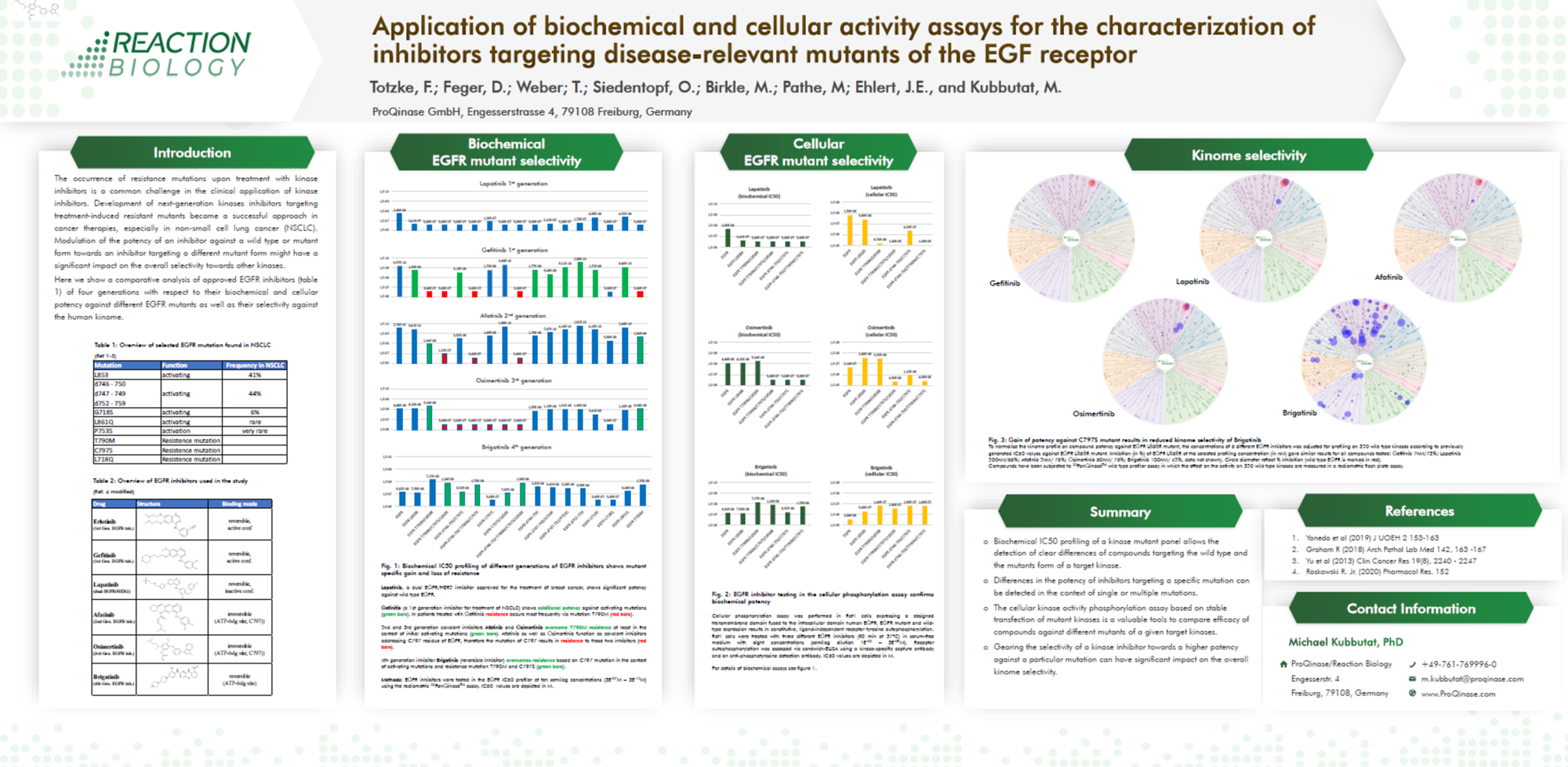EGFR Assays & Drug Discovery Services
The epidermal growth factor receptor (EGFR) is a much-validated target for oncology drug discovery. Dysregulation of EGFR causing over-expression or constitutive activity results in malignancies in many tissues, including breast, pancreatic, lung, and colon tissues.
EGFR-driven tumor growth can be successfully treated with several clinically approved inhibitors; however, treatment is often compromised due to acquired resistance mutations. Second, third and fourth-generation EGFR inhibitors seek efficacy against mutated forms of EGFR.
Reaction Biology has developed assays against many clinically relevant EGFR mutants to support the discovery of further EGFR inhibitors to fight cancer. Please reach out to our global business development team if you like to work with us on your EGFR drug discovery project.




